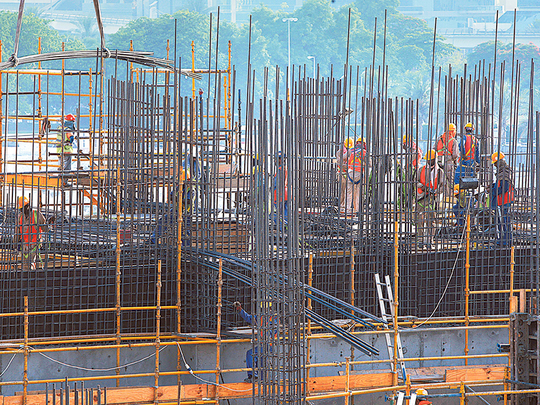
Dubai:
The dramatic drop in oil and gas prices has sparked concern about its impact on global project financing. However, the current low price of crude oil and natural gas is unlikely to have a widespread impact on the credit quality of project finance debt, but the overall cost of funding for regional projects is likely to go up, said Standard & Poor’s credit analyst Karim Nassif.
As of March 2015, 71 per cent of S & P’s 282 rated global project financing, including most of those for oil and gas projects, carried investment-grade ratings (‘BBB-’ or higher). The rating agency expects many of these projects will continue to benefit from long-term contractual agreements, break-even points that were designed with low oil and gas prices as a base, the presence of substantial available liquidity to the issuer, or varying degrees of sovereign support.
Despite the relative low risk outlook for projects under the current price scenario, Nassif said a prolonged deterioration in oil and gas prices could drive away investors and banks from hydrocarbon linked project funding. The current price of crude could make some lenders more cautious in underwriting new, long-term projects until there is more visibility about the depth and length of the oil price slump.
“A longer-than-expected slump will also, in our opinion, cause issuers to be more discerning in the selection of projects they undertake, forcing them to decide between urgent projects and those that are desirable but which can be put on hold. It’s also likely that some projects will increasingly seek to offset part of the volatility risk of oil and gas prices through the use of private-sector partners and increased credit enhancement from supranational lenders,” Nassif said.
While there have been no evidence of large scale project cancellations or funding crunch for the projects announced in the GCC region, S & P analysts said funding for projects could face higher costs in the context of squeeze on liquidity in the banking system and a potential change in the risk perception of debt capital market investors, if the oil prices are to remain depressed over a long period.
“A potential liquidity squeeze in the bank market resulting from reduced deposits from governments and government related entities could eventually reflected in the pricing of corporate loans and project loans,” said S & P’s credit analyst Timucin Engin.
However, Engin said, there are no visible signs of decline in the liquidity of GCC banks as most banks’ loans to deposit ratios below 100 per cent.
“The impact on liquidity and cost of funds could be visible if the decline in oil price persists over the next few more quarters,” he said.
S & P analysts said the UAE and Dubai do not face any immediate challenge to funding projects as the country has a robust AA rating that supports strong investor confidence. As for the long term funding of Dubai’s infrastructure projects including Expo 2020 projects, analysts said independent sovereign rating of Dubai could improve investor confidence.












